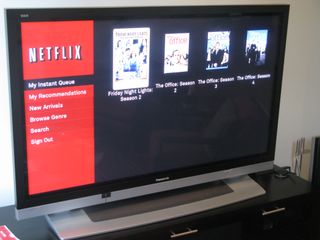Don't Ignore The Least Common Denominator
There's been a healthy debate of late about whether mobile apps are a long term business or whether web apps running on mobile devices will ultimately win out. It's an important debate to have and while I favor mobile web apps, the current state of mobile technology and connectivity certainly favors the mobile app in the short term.
But lost in all of this debate is the least common denominator – sms (or texting as it is know in the mainstream).
I believe that Twitter's native implementation of sms is an important part of its success. The 140 character limit was driven by the 160 character limit of sms and the initial design of the service put sms compatibility up there near or at the top of the system requirements. Other competitive services, including Facebook, are just not as natively available via sms the way Twitter is.
Of course most people access Twitter and Facebook and other web services via mobile web interfaces and apps. I don't know the current percentages but I think something less than 15 percent of Twitter updates are posted via sms. And the number of people following via sms is also relatively low.
But I think it is critical, particularly early on in the commercialization of a mobile web service, for there to be an easy and quick sms interface. It allows potential users to see the value of the service without having to download anything. And it is always faster to shoot out a text message than load a mobile app or a mobile web page.
And the onboarding experience can also be easier via sms. Jack Dorsey, who built the first version of Twitter, showed me the easiest way to sign someone up for Twitter a few years ago. He said 'when you want to get a friend on Twitter just tell them to send "follow fredwilson" to 40404'. For those of you who don't know, 40404 is the Twitter shortcode in the US. I've used Jack's approach dozens of times since then.
I've been playing Foursquare lately and I blogged about it last week. I check in most of the time via sms. Many people who play foursquare don't know you can do that. It's fast and easy. Much faster than loading the iPhone app and checking in.
I don't know if you can sign up for Foursquare via sms (like you can with Twitter) but it would be great to be able to do that. Let's say you are at dinner with friends, you sit down and do a Foursquare check in via sms. Your friends might ask you what you are doing. And you show them and they then do the same thing. That's virality and friends showing friends is one of the best ways to get mobile web apps to spread.
So while its true that serious mobile web services require mobile apps and good mobile web interfaces to deliver real engagement, it is also true that you should offer a simple, easy, and fast sms interface. Its the least common denominator, its on every cell phone out there, and it will help you build your user base.
![Reblog this post [with Zemanta]](http://img.zemanta.com/reblog_b.png?x-id=2829939a-144f-4822-951f-b55bdf579e32)
![Reblog this post [with Zemanta]](http://img.zemanta.com/reblog_b.png?x-id=78b19eb6-331c-4680-82c8-54bdc0af46cd)
![Reblog this post [with Zemanta]](http://img.zemanta.com/reblog_b.png?x-id=1428d9be-9798-45ba-96d7-1b2d96579273)

![Reblog this post [with Zemanta]](http://img.zemanta.com/reblog_b.png?x-id=a84e1e93-b50f-4d3b-87d6-09b1db5f922c)
![Reblog this post [with Zemanta]](http://img.zemanta.com/reblog_b.png?x-id=d5910140-b00e-4a20-89f2-a6cb86c45ac0)
![Reblog this post [with Zemanta]](http://img.zemanta.com/reblog_b.png?x-id=87ce8236-d59d-4692-99d1-b1b35d5b157a)
![Reblog this post [with Zemanta]](http://img.zemanta.com/reblog_b.png?x-id=784f0e3e-a69e-42ab-b23f-23ab859d39a9)
![Reblog this post [with Zemanta]](http://img.zemanta.com/reblog_b.png?x-id=635e4cc9-0cee-468a-be26-77c6dcc42cae)
![Reblog this post [with Zemanta]](http://img.zemanta.com/reblog_b.png?x-id=2a6410b7-2e5f-437c-8e83-8eeb416fd35c)